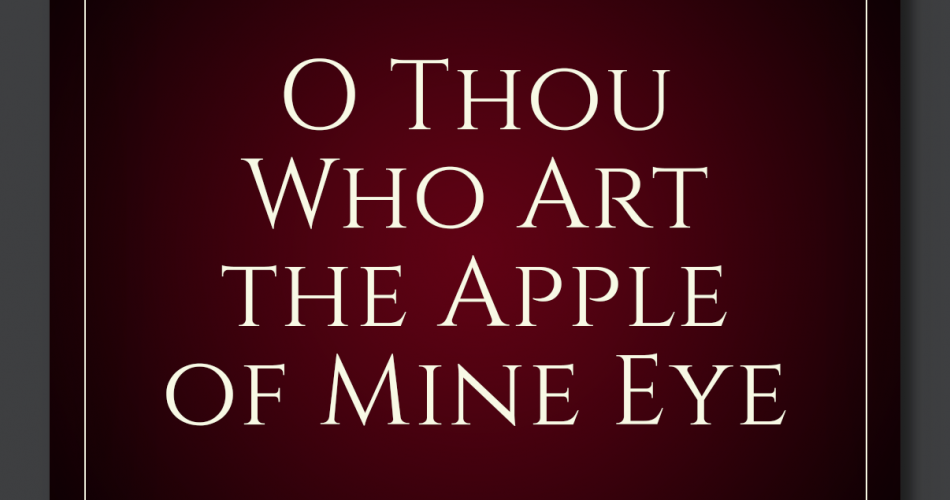O Thou Who art the apple of Mine eye! My glory, the ocean of My loving-kindness, the sun of My bounty, the heaven of My mercy rest upon Thee. We pray God to illumine the world through Thy knowledge and wisdom, to ordain for Thee that which will gladden Thine heart and impart consolation to Thine eyes.
Bahá’u’lláh
يَا بَصَرِي عَلَيْكَ بَهَائِي وَبَحْرُ عِنَايَتِي وَشَمْسُ فَضْلِي وَسَمَاءُ رَحْمَتِي نَسْئَلُ اللّهَ أَنْ يُنَوِّرَ الْعَالَمَ بِعِلْمِكَ وَحِكْمَتِكَ وَيُقَدِّرَ لَكَ مَا يَفْرَحُ بِهِ قَلْبُكَ وَتَقَرُّ عَيْنُكَ
حضرة بهاءالله
These touching words from a Tablet of Bahá’u’lláh to ‘Abdu’l-Bahá—a Writing by a Manifestation of God addressed to the Mystery of God—clearly shows the immensity of love that this divine Father felt for His superhuman Son. As a token of that profound affection, He addresses ‘Abdu’l-Bahá as baṣarí, literally “my eye,” which Shoghi Effendi has translated into idiomatic English as “the apple of Mine eye.”
A remarkably poetic feature of this excerpt is that it begins with an allusion to the eyes of Bahá’u’lláh (“O Thou Who art the apple of Mine eye!”) and ends with a reference to the eyes of ‘Abdu’l-Bahá (“…and impart consolation to Thine eyes”).
Another thing to note about this selection is that it is the first one published by the Utterance Project that uses the word bahá’í (in this context, “my glory”) in precisely the same original and transliterated spelling by which Bahá’ís refer to themselves and their religion.
Original Sources
Further References
